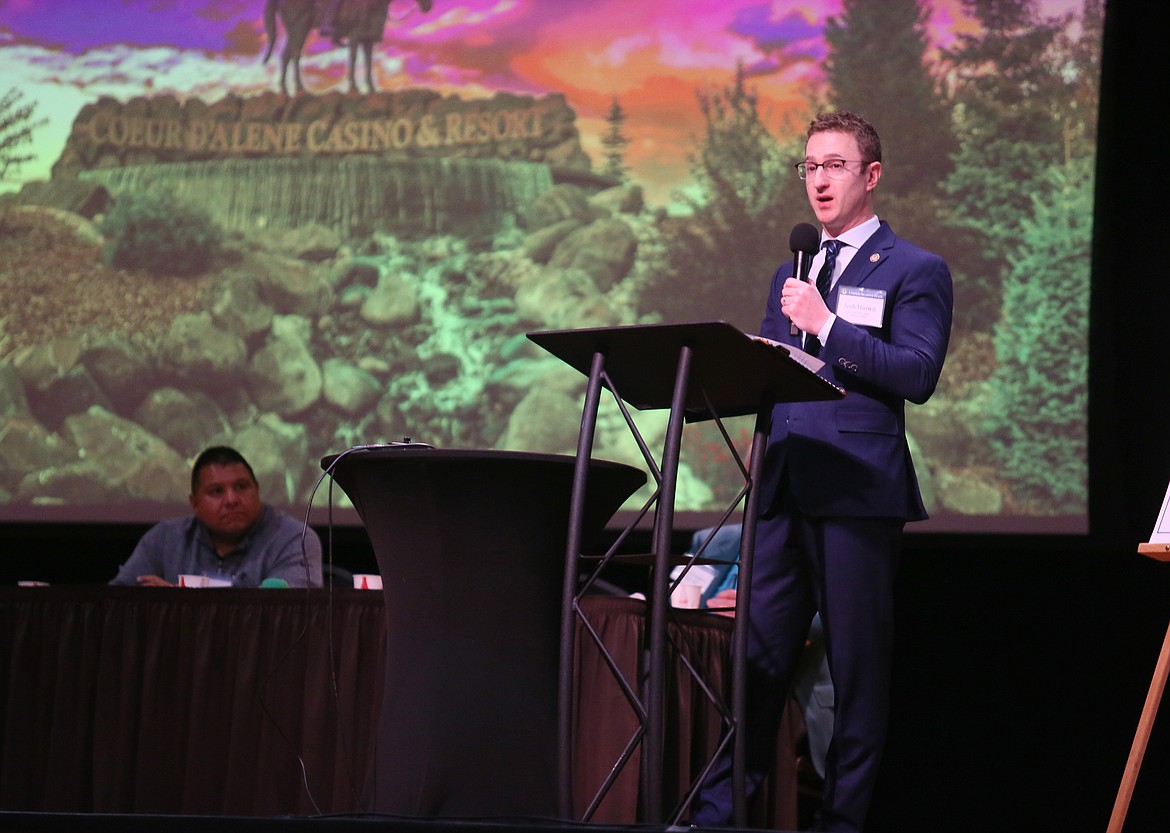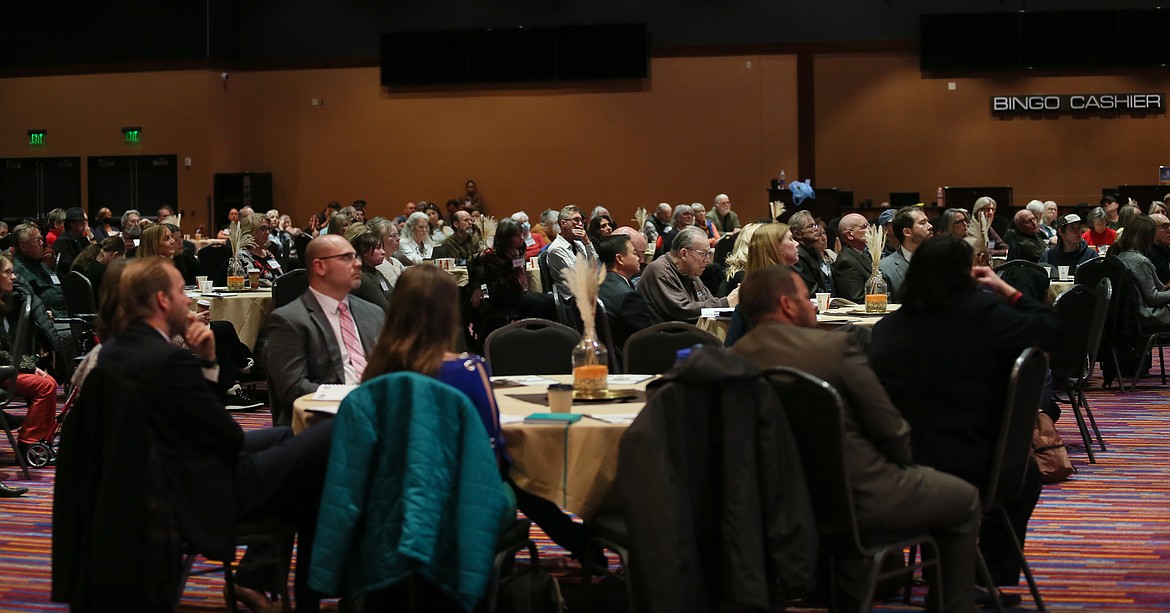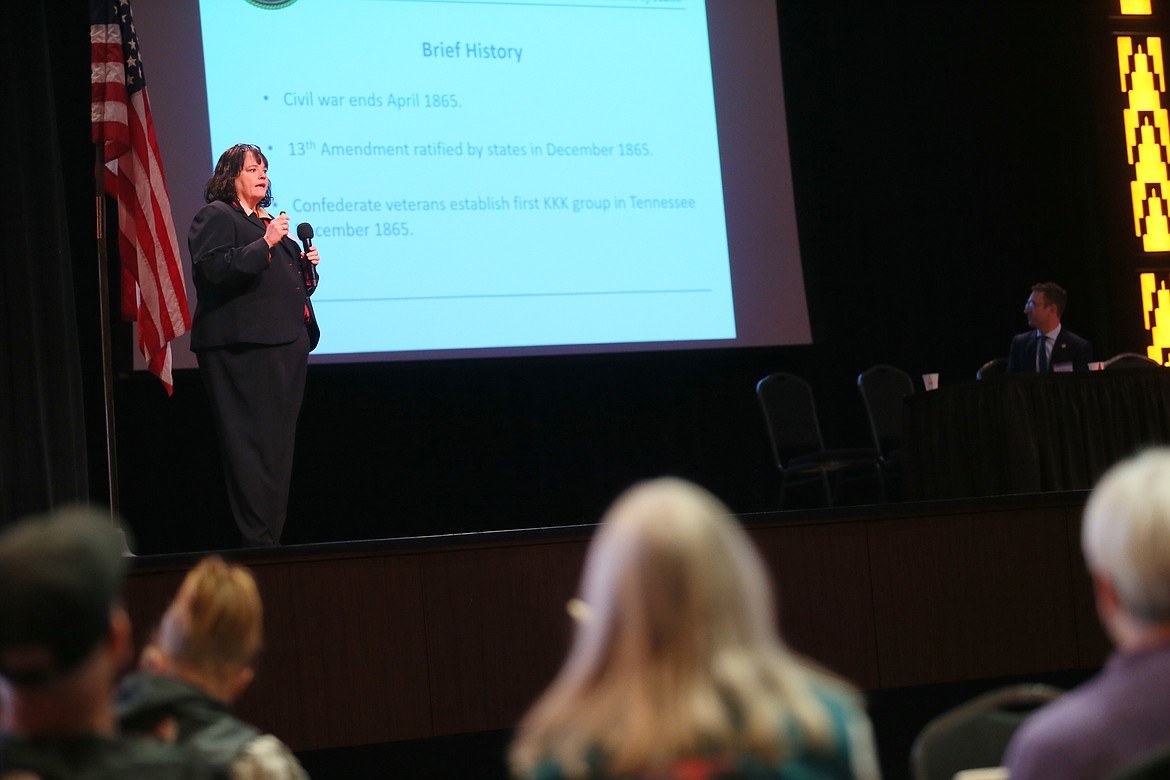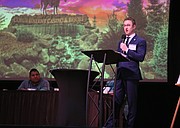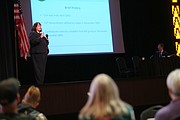Uniting against hate
North Idaho is calling out hate.
People are sick of its destruction, tired of the misery it creates and frankly, they've had enough.
They're calling for their fellow Idahoans to unite against it.
This was evidenced by the roughly 200 people who attended the United Against Hate forum held Thursday afternoon in the event center at the Coeur d'Alene Casino in Worley.
The forum was organized by Josh Hurwit, U.S. attorney for the District of Idaho, in conjunction with the Coeur d'Alene Tribe, the Kootenai County Task Force on Human Relations, the U.S. Department of Justice and the FBI. United Against Hate is an initiative launched by the Department of Justice to improve efforts to combat hate crimes and hate incidents through building relationships at the local level. The objective is to create and strengthen trust among community leaders, law enforcement and members of the public.
"The moniker of hate and that idea did not exist on this land. It was an introduced thing," Coeur d'Alene Tribal member Hemene James said. "The Coeur d'Alene Tribe is committed to the intention that love, the interaction that the Creator had when he placed us here for all beings — and that's what we see ourselves as, as beings, not the ruler of this land, but the beings that belong to it — and regardless of disagreements we have with certain groups, certain individuals, certain ideology, if you are focused on that idea of treating your fellow beings with respect without the hate, I will make that commitment to you guys that you will always have a partner in the Coeur d'Alene Tribe."
These remarks were made at the opening of a nearly three-hour event that delved into the United Against Hate initiative.
"At the Department of Justice, our mission is to enforce the rule of law. That includes a commitment to prosecuting unlawful acts of hate," Hurwit said.
This is important, he said, because under the U.S. Constitution, everyone is equal regardless of race, nationality, ethnicity, gender, religion, sexual orientation or gender identity. He said crimes that target individuals or groups based on those characteristics are repugnant to the rule of law.
Hate by itself is not illegal, Hurwit said; people are not prosecuted for what they believe. Criminal acts, violence and threats of violence are what will be prosecuted.
"But we need to recognize that hate crimes and unlawful acts of violent extremism don't just happen," he said. "That type of violence is usually the end point, and not the beginning."
Situations devolve when people are unwilling to see or listen to each other, and when they start viewing their fellow citizens, their neighbors, as others, he said.
"It is then that violent rhetoric can lead to actual violence," Hurwit said.
He said part of the goal of the forum and into the future is to bring together people of different backgrounds and views.
"That's our community," Hurwit said. "We have differences, we may disagree on many things, but we need to find a place where we respect differences and where we can have civil discussions, rather than to turn inward and to turn toward hate.
"I believe it is possible to avoid this in North Idaho," he continued. "I believe that if we do it here, we can inspire the rest of Idaho. And I believe that Idahoans can inspire the rest of the nation."
The forum featured information on the difference between hate crimes and hate incidents, how Idaho attorneys prosecute hate crimes, the call for unity across the Inland Northwest and the need for people to report often underreported hate incidents.
Traci Whelan, assistant U.S. attorney and branch manager of the Coeur d'Alene branch of the U.S. Attorney's Office for the District of Idaho, talked about how hate creates trauma that affects not only victims, but families, neighborhoods and communities for generations.
She said as a community looks to stand up against hate, it's critical to recognize its far-reaching implications.
"Neuroscience is telling us that trauma can be carried through in DNA. You can have cultural inheritance," she said. "It affects more than just the person who was victimized."
Whelan shared data from 2020 showing hate crimes in Idaho are on the rise.
"We care because we're finding ourselves in court more often prosecuting these," she said. "We care because we're seeing the effects in our community."
A panel highlighted perspectives from the Rev. Heather Seman, Coeur d'Alene City Councilwoman Christie Wood, Sandpoint Mayor Shelby Rognstad and Coeur d'Alene Tribal Chairman Chief Allan.
"Native people have been experiencing hundreds of years of hate crimes, not only against our people, but our women," Allan said. "Our women are being taken, beaten and murdered."
These topics are deeply painful, Allan said, but also show how his people are resilient.
"We're warrior people, we're strong. We don't back away from that kind of stuff," he said.
He recalled when a bus full of Lakeside High School football players was attacked as it left a game in Clark Fork in 2020.
"They were bombarded with rocks, but at that time, we didn't know it was rocks. We thought it was gunfire," Allan said.
"Did our community get afraid and all that stuff? No, we were pissed. Thank you to the FBI office, the FBI was very responsive," he continued. "I'm a very optimistic person by nature, but I will also defend our people. We defend all of our people, we're all related. If somebody is weak and hurting, we're going to defend them because we need to stand up for them. Come on people, this is 2022, we're on the verge of 2023, and we're still talking about this, we as human beings? There's no place in our world for that."
At the close of the forum, Hurwit said hate will not be accepted in Idaho's communities.
"Love is what thrives," he said.


